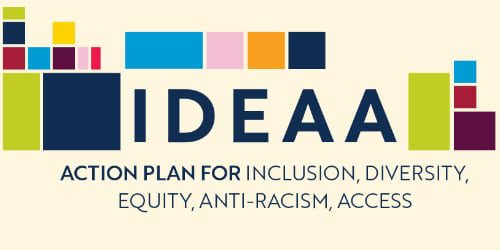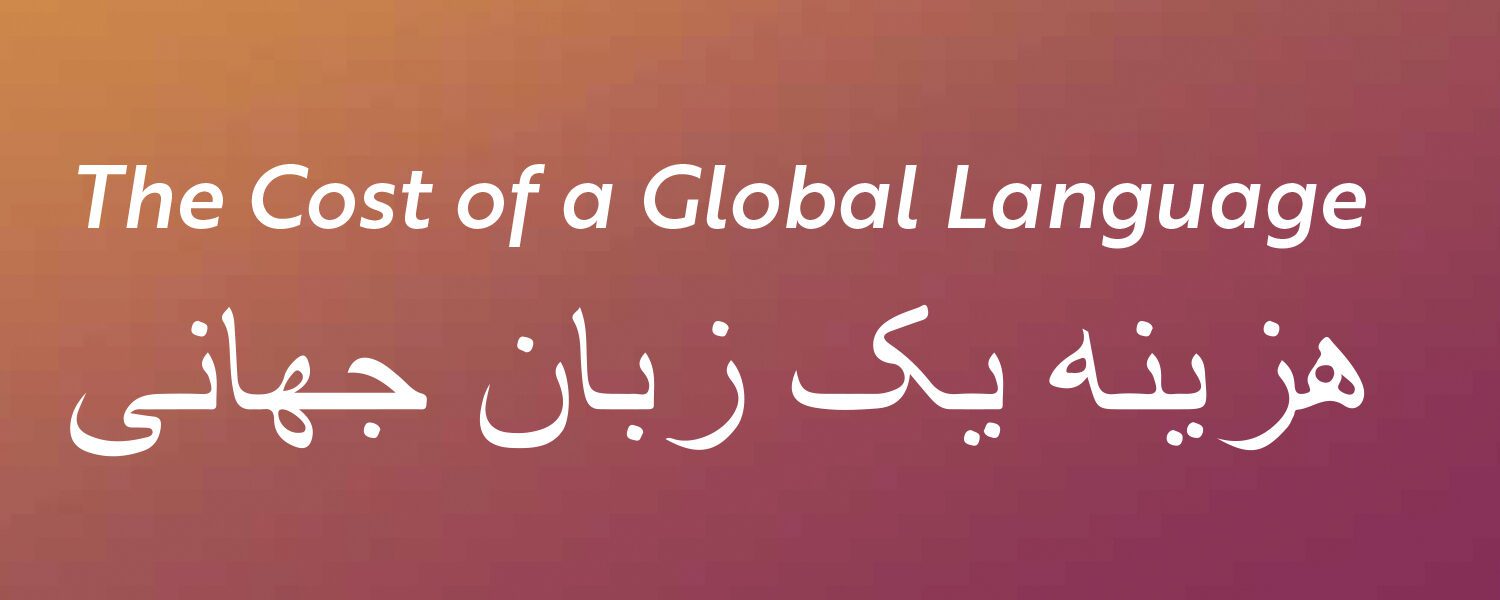English has been extended by popular demand through June 16!
GET TICKETS
By Yasmin Zacaria Mikhaiel
Ask anyone why they think English has become the de facto “global language” and the answers will meander through history, politics, culture, commerce, learnability and the internet. At the root, though, all these answers have something in common: power.
Language makes up a significant element of who we are as people. Our ability to communicate—express ourselves—deeply impacts our well-being. When we learn a new language, we not only face vulnerability but also must build a new personality along with linguistic skills. Scholars have dubbed this phenomenon “cultural frame switching,” a term which describes how multilingual speakers exhibit different personalities when using different languages. Along with researching the impacts of multilingualism and language learning on individuals, scholars have also examined why English dominates the world.
From its origins as a regional tongue in the British Isles to its current status as the lingua franca of the modern world, English has undergone a complicated journey of expansion and influence. The reasons behind English’s global hegemony range from colonialism and economic power to technological advancements and cultural impact.
It’s no surprise that the British Empire serves as the main catalyst for the spread of English. The so-called “Age of Discovery” in the 16th century inflicted great violence in the name of building empires for the purpose of trade and prosperity. At its peak, Great Britain’s occupied territories and colonies stretched across the globe with roots in North America, India, Africa, Australia, China and beyond. Through colonization, English was imposed upon Indigenous populations, often supplanting native languages and becoming the dominant medium of communication while inflicting disease and famine on these communities. Notably, assimilation policies in North America established in English-speaking colonies impacted many Indigenous people including the Cherokee tribe and the member nations of the Iroquois Confederacy. The legacy of British colonialism laid the foundation for English to establish itself as a global language, leaving an indelible mark on the linguistic landscape of the world and its people.
Following World War II, the deadliest and most destructive war in history, globalization accelerated as the United States emerged as a preeminent economic power, wielding significant influence in international trade, finance and diplomacy. American businesses, propelled by the dominance of English-speaking markets, played a pivotal role in spreading the language worldwide. English became the de facto language of commerce, facilitating communication and collaboration across borders. As technology advanced in the background, the stage again had been set for English to continue its march through societies across the world.
The vast majority of online content ranging from websites and social media platforms to software applications and technical documentation is in English. Viral tweets and hashtags become jokes and trends locked in English despite the advancement of translation services. #Selfie, #TBT, #OOTD—internet shorthands abbreviated from English became the language of cyberspace, enabling seamless information sharing on a global scale. This carries implications for all kinds of labor, as innovations originating from English-speaking countries propelled the language to the forefront of scientific research and academia.
English is so widely taught as a second language in schools and around the world that the type of coursework was abbreviated to ESL, even if most of the globe already speaks two languages or more. Furthermore, the Foreign Language Service Institute created a list that ranks language difficulty and the approximate amount of time it takes to learn. But in this list, English serves as the baseline comparison across all languages. It sits outside the standard, rather than being ranked.
Historically, English-language media has enjoyed wide dissemination, further reinforcing the language’s dominance on the global stage. Hollywood movies, British music and American television have global audiences, which shape perceptions and preferences worldwide. Within classrooms across the world, the tools of learning English lean on a curriculum embedded with clips and sounds of America’s beloved stars and artists.
Although the students in English—our play that bears the same name as the language we’ve traced here—live in Iran, their experiences of learning, vulnerabilities and hopes are universal. Like all English learners, their approach to the language is influenced by its complex history and global context. For these students, English simultaneously represents freedom and burden, opportunity and adversity and expression and repression.
Yasmin Zacaria Mikhaiel is the Dramaturg for English.
























